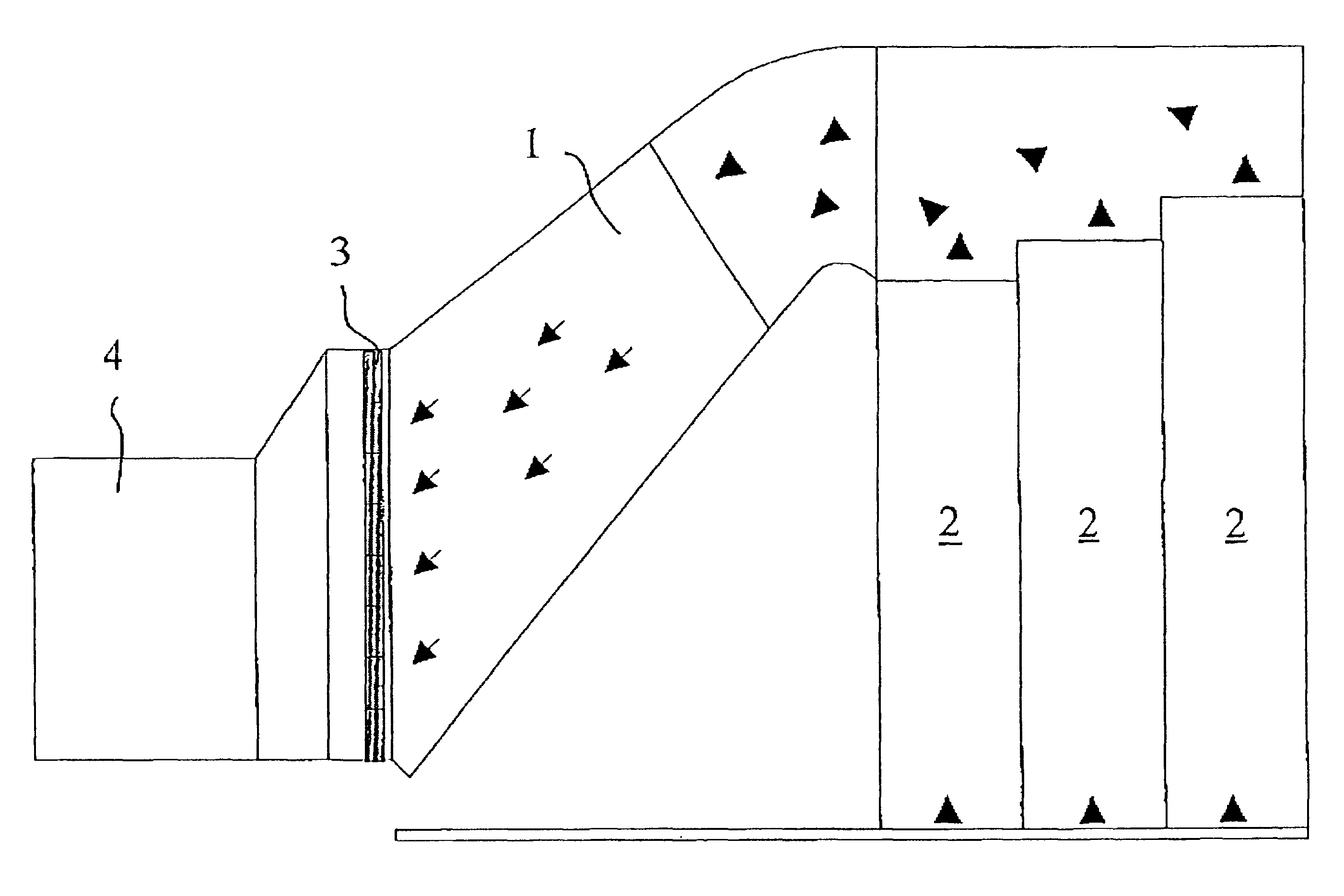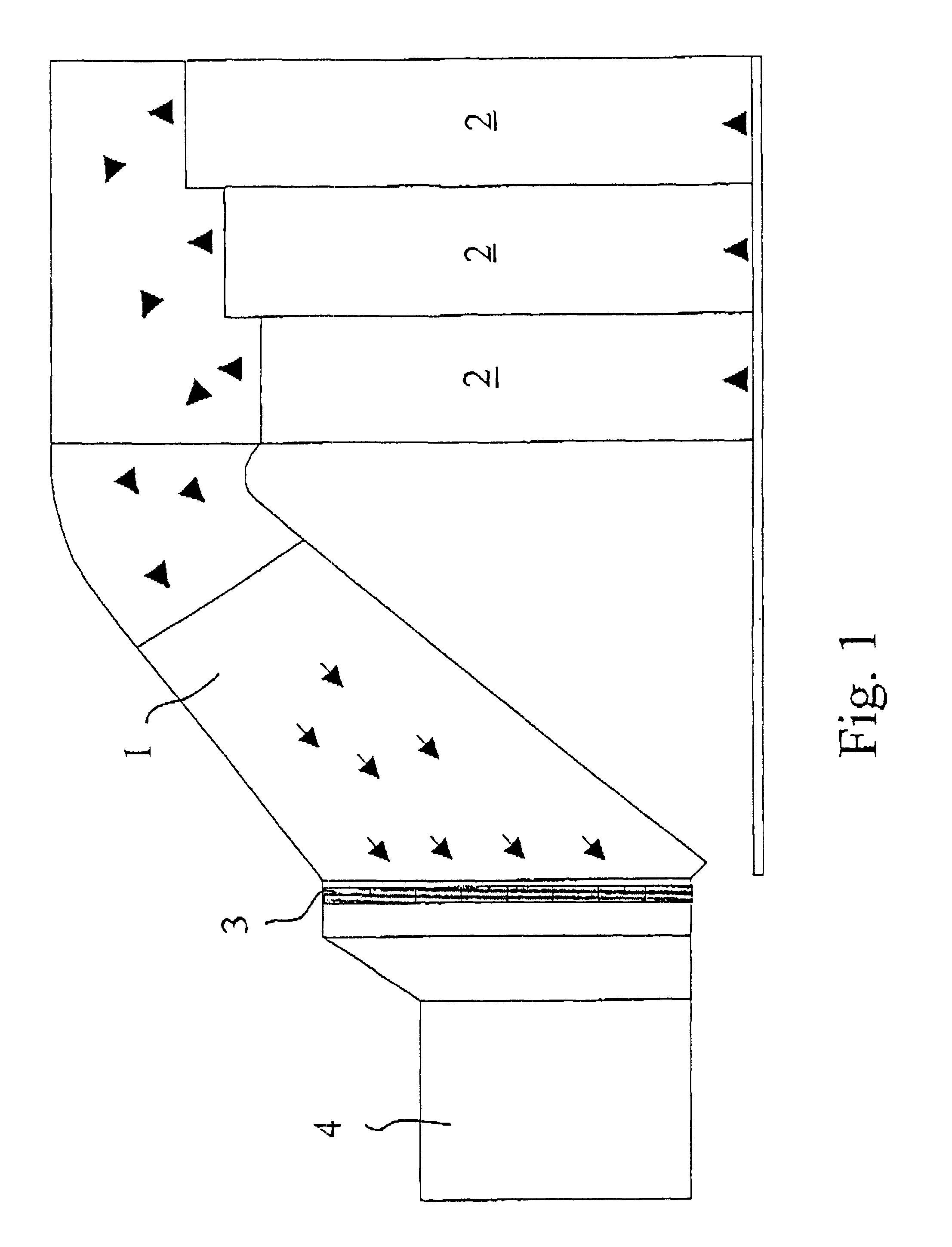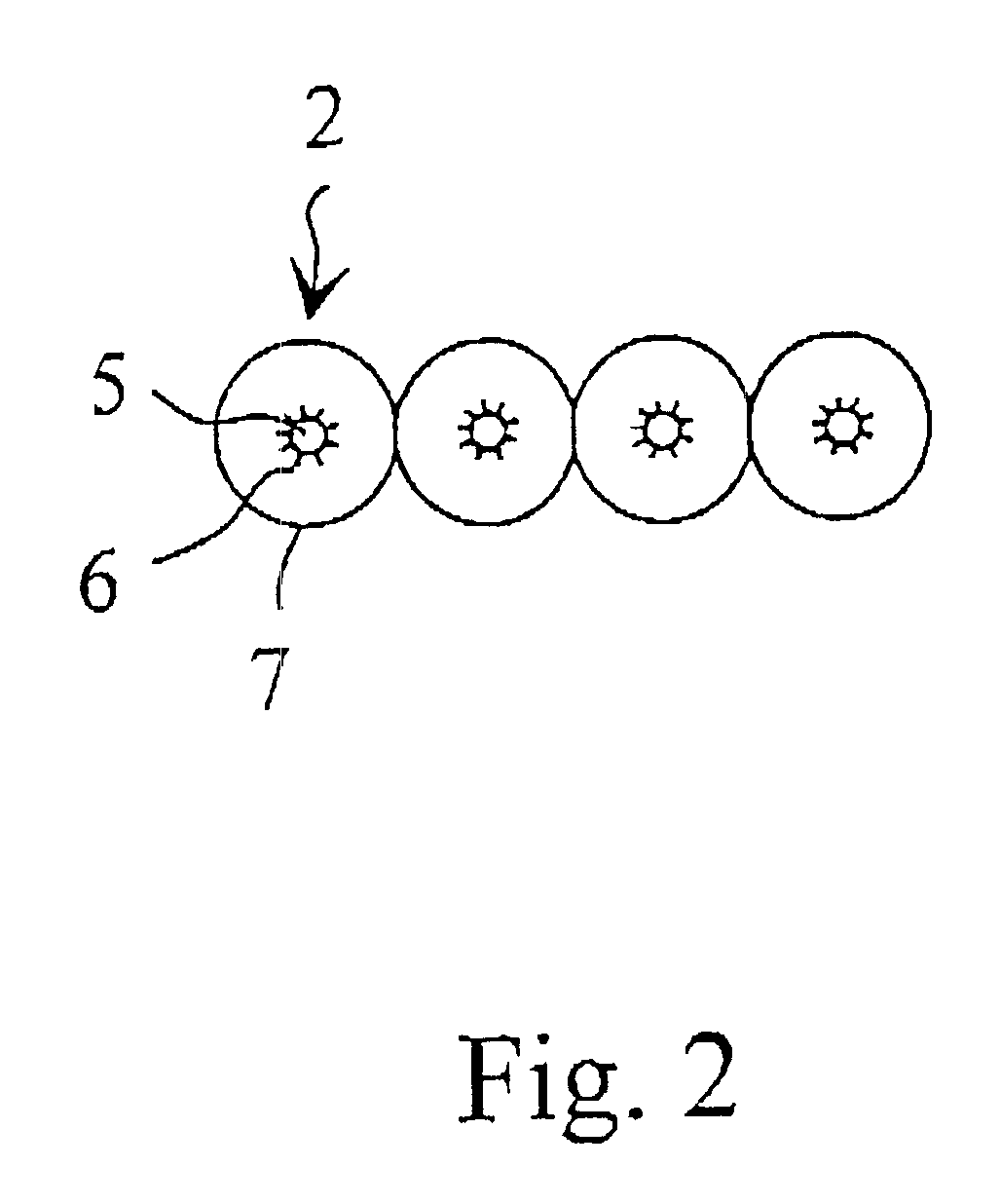Pressure losses in the intake air passage, on the other hand, reduce the efficiency of the equipment, wherefore
filtration efficiency is always a compromise selected with regard to the prevailing conditions.
At low temperatures, the water droplets will freeze onto the surface they encounter forming greater
layers of ice, which may damage the compressor blades when coming off.
In the worst possible case this may break the entire compressor.
Both ways will result in a rapid increase in the pressure losses of the filter, and the filter capacity of mechanical filters can only be increased to a given limit, and it is safe to say that in practice present fibre filters achieve complete separation of particles having a size of 1 to 5 .mu.m.
In known filters, the separation of sufficiently
small particles is always incomplete.
Furthermore, mechanical filters are susceptible to
wetting caused by the small air-borne water droplets and the pressure losses from the air over the filter.
A
mechanical filter is then clogged and, at a sufficiently low temperature, it freezes.
The deposition reduces the operating efficiency and electric output of the turbine.
The reduced power is the sum of a number of factors, such as the
wear and tear caused by the particles, inefficient
cleaning methods resulting in a failure to remove all deposit material, the
abrasive effect of cleaning, and the increased giving at the insulants and the increased leakage resulting therefrom.
Even the slightest reduction in output capacity during the entire service life incurs considerable losses.
Washing with water, in particular, is hampered by freezing in cold conditions.
The costs incurred by
fouling are due to the increased need for fuel, the reduced efficiency and the washing costs of the compressor.
Even with washes, not all impurities can be removed, and it remains a factor contributing to power losses in the range of tens of percents in just a few years.
The use of intake air preheating causes considerable production losses annually and results in increased
operational costs due to the reduced operational efficiency.
Filter
fouling leads to pressure losses when the filters are clogged by
contamination, and the foul filters must be replaced periodically.
The more closely meshed the filter, the greater the need for filter replacement, and filter replacement incurs costs due to the price of the filters and the down time.
In addition, electric filters have been considered so unreliable that the use thereof as an only filter has been considered too great a risk.
One downside of electric filtration methods has involved
humidity and the short circuits it causes.
One problematic type of deposit comprises different kinds of fibres, which due to their longitudinal shape may connect live parts to each other, thus giving rise to short-circuiting in the equipment.
The
biggest problem related to
ice formation is the detaching in big pieces of the ice formed on the plates of an electric filter, as such pieces may cause serious damage when ending up in the compressor.
The freezing risk is further increased by the fact that air may cool down in the suction passages due to the pressure drop, whereby freezing may occur even with the ambient temperature above the
freezing point.
This is particularly problematic because warmer air may have a higher
humidity content.
Water reaching the plates of an electric precipitator is also harmful because it may wash off some of the deposit accumulated on the plates, which then has unprevented access into the compressor and turbine in particles of considerable size.
 Login to View More
Login to View More  Login to View More
Login to View More 


